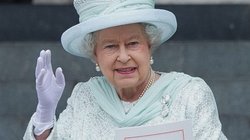 As a largely ceremonial head of state, Queen Elizabeth II is meant to remain above the fray of politics. But it comes as no surprise amid the Queen’s Brexit fiasco that a former prime minister revealed the Monarch had had a hand in swaying the 2014 vote of Scottish independence.
As a largely ceremonial head of state, Queen Elizabeth II is meant to remain above the fray of politics. But it comes as no surprise amid the Queen’s Brexit fiasco that a former prime minister revealed the Monarch had had a hand in swaying the 2014 vote of Scottish independence. RNA - The Queen has found herself dragged into messy British politics this week, as Scotland’s First Minister, Nicola Sturgeon, implied the Monarch should refuse to be drawn into a future vote on Scottish independence.
Her remarks came after former Prime Minister, David Cameron, admitted he asked the Monarch to intervene in a future vote on Scottish independence back in 2014 (a YouGov survey put the campaign for Scottish independence in the lead for the first time).
The Queen was later found to have made an intervention that was widely seen as helping a faltering pro-union campaign.
She said: “Well, I hope people will think very carefully about the future.” And that was all it took to sway Scots on the fence, as the referendum on Scottish independence was rejected.
The Queen has taken it upon herself again to choose sides at a time when Britain is bitterly divided over its divorce from the EU. The recent prorogation of Parliament could not have been approved without the Queen’s consent.
Although the Queen is the United Kingdom’s head of state, she is not its head of government. By avoiding party politics, she is expected to represent a unifying force in the country.
All in all, the decision for Brexit, as well as Scottish independence, lies in the hands of the people, and any attempt to influence from a constitutional monarchy with no hold over policy is a sorry state indeed.
847/940